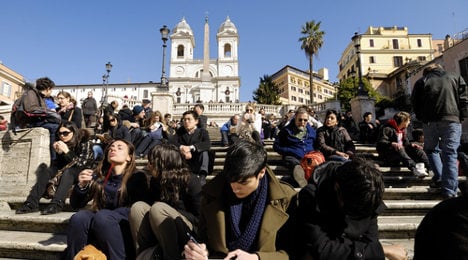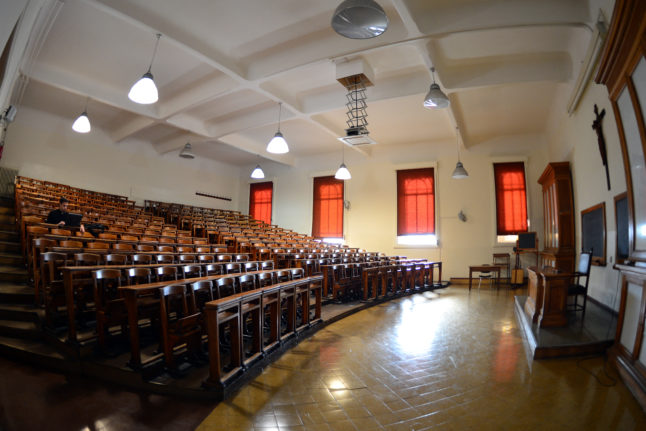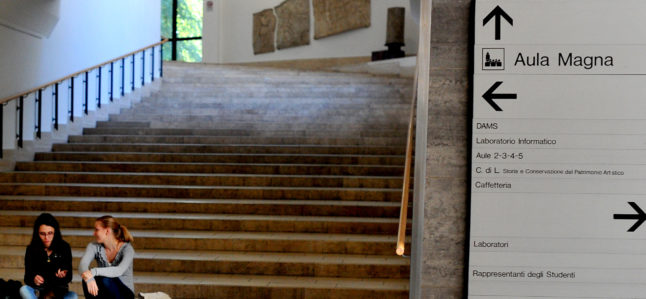You will need a codice fiscale
Regardless of whether you’re studying or undertaking an internship, this tax code is an essential part of moving to Italy. You will need to take a photocopy of your passport to your local Agenzia delle Entrate (Inland Revenue) and ask for a codice fiscale form.
You will then sit for what feels like hours before being given a stamped certificate with a number on it. This number will be necessary for almost anything you want to accomplish – from renting an apartment and opening a bank account and to paying a bill and joining the gym – so keep it safe.
Photocopy everything
Buy a document wallet and photocopy everything you can possibly think of to photocopy before leaving your home country. The most important ones are your European Health Insurance Card (EHIC), your passport and yes, your codice fiscale (once you get it). Most places will want to keep the photocopy, so make a few copies just in case, and keep them all in the wallet with the originals.
Plan house viewings before you arrive
Never pay anything online or over the phone and ask to see pictures of the apartment before you arrive. If it’s not a scam then the landlord should be happy to oblige. As a student, sites such as www.bakeca.it, www.easystanza.it and www.portaportese.it can be particularly useful for short term rentals in shared apartments.
Take advantage of Erasmus events
Even if you’re not studying at a university for your year abroad, you can still take part in Erasmus events. All you’ll need is an ESN card, which is available from most university offices.
Just take two passport sized photos, your country’s health card and your ID with you to your local university and they’ll give you the card there and then. This allows you discounted entry into clubs and bars, as well as special events and trips, and can be a great way to meet people.
People will try to rip you off
Taxi drivers are particularly notorious for this. They can spot a newly arrived visitor a mile away and will try to lie about the fare in order to make more money. Look for signs on the side of cabs showing standard rates to the airport and obviously only use licenced taxis. Try to use Italian where you can, as this usually helps avoid rip-offs.
Beware of pickpockets
This goes for anywhere really, but newly arrived visitors can stand out to thieves and you have to be wary of your belongings. One friend of mine had only been in Rome a mere two days before having his wallet stolen while waiting in the queue at an ice cream shop. He didn’t notice anyone standing too close to him so by the time he realized it was gone, it was too late.
It is best to buy a small bag with a zip that can be kept close to you at all times, and be wary of anyone standing too close.
Remember to buy your bus tickets in advance
You have to pre-buy bus tickets in most Italian cities, and if you don’t buy one at a ticket machine in a train station then they’re available in tobacconist shops and at newspaper stands. So bear in mind that if you’re on a night out and are depending on the bus to get home, then remember to buy a ticket before the shops close so that you avoid a €50 fine or a long walk home.
Take a free walking tour
These are normally very easy to reserve and in larger cities may run as frequently as once a day. You will get to know the place you’re living in much more quickly and find out things you otherwise would not have known. Websites such as www.venicefreewalkingtour.com, www.newromefreetour.com and www.florencefreetour.com offer free walking tours in some of Italy’s most popular cities.
The culture shock is real
Tea is not widely available in Italy and kettles are seen as a strange, pointless invention so either stock up before you go or develop a serious coffee addiction. Other things you might miss include peanut butter and porridge, so decide if they are really worth packing in your suitcase.
Make sure to brush up on your vocabulary
When setting up a bank account or looking for a flat, specific words such as cauzione (deposit), bollette (bills) and tasso di interesse (interest rate) can surprisingly slip your mind. Brush up on your vocabulary before you come to avoid confusion.
By Ellie Bennett




 Please whitelist us to continue reading.
Please whitelist us to continue reading.
Member comments